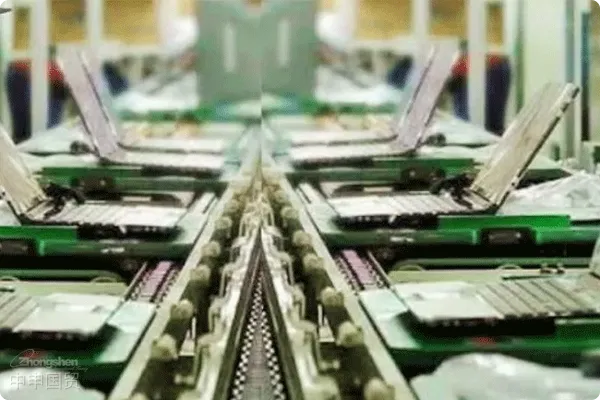- Shanghai Zhongshen International Trade Co., Ltd. - Two decades of trade agency expertise.
- Service Hotline: 139 1787 2118
The Indian government recently confirmed that it will provide subsidies to 27 international technology hardware manufacturing giants to promote the development of the domestic electronics manufacturing industry. This news was reported by the Hong Kong-based South China Morning Post on the 20th. According to the official statement of the Indian government on the 18th, IT hardware manufacturers including Dell, HP, Lenovo, and Foxconn, among 27 companies, have been approved for the Indian governments Production-Linked Incentive (PLI) scheme. Among them, 23 companies are ready to start production immediately, while the other 4 companies will start production within 90 days.

Ashwini Vaishnaw, Minister of Electronics and Information Technology of India, said that the 27 approved applications are expected to bring nearly 30 billion rupees (about 360 million US dollars) in investment. This move is expected to create about 50,000 direct jobs and 150,000 indirect jobs in India. In addition, the output value of Indias information technology hardware is expected to reach 42 billion US dollars.
According to a report on the US CNBC website, the PLI scheme has a budget of 170 billion rupees (about 2 billion US dollars) over a period of 6 years and covers products such as laptops, tablets, mini personal computers, and servers. The PLI scheme, initially launched in 2020, is regarded by the Indian government as a key strategy to make India a global electronics manufacturing hub, aiming to achieve a total output value of 300 billion US dollars by 2026. Currently, the scheme has covered 14 major manufacturing sectors in India.
However, the Indian news website The Wire pointed out that there are still some shortcomings in the PLI scheme. As of March 2023, only 29 billion rupees (about 340 million US dollars) of funds have been paid under the scheme. Indian government officials said they will review the scheme to identify its deficiencies. Although the PLI scheme has not fully met expectations, it is worth noting that India has successfully attracted Apple to assemble mobile phones locally. However, there have always been disputes over the quality of Indian-made iPhones. There are quality problems with Indian-made iPhones, and about 50% of the produced iPhone casings face rejection, the Indian Firstpost reported the quality problems of Indian-made iPhones in February. According to the report, about 50% of the mobile phone casings produced by Indias Tata Company failed Apples quality control inspection.
In addition, the number of enterprises willing to set up production in India is still limited. In May this year, the Indian government announced an increase in the subsidy scale to 2 billion US dollars. However, due to the poor effect, the Indian government had to extend the deadline for applications to August 30th.
Despite the challenges, Indias electronics manufacturing and mobile phone export industries still show a certain upward trend. Indias Economic Times reported that from April to August this year, Indias mobile phone exports almost doubled, reaching 5.5 billion US dollars. At the same time, the total output value of Indias electronics manufacturing industry exceeded 150 billion US dollars.
Related Recommendations
? 2025. All Rights Reserved. 滬ICP備2023007705號(hào)-2  PSB Record: Shanghai No.31011502009912
PSB Record: Shanghai No.31011502009912









